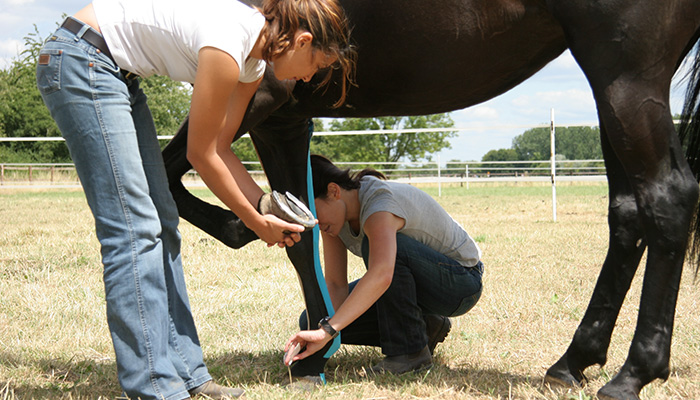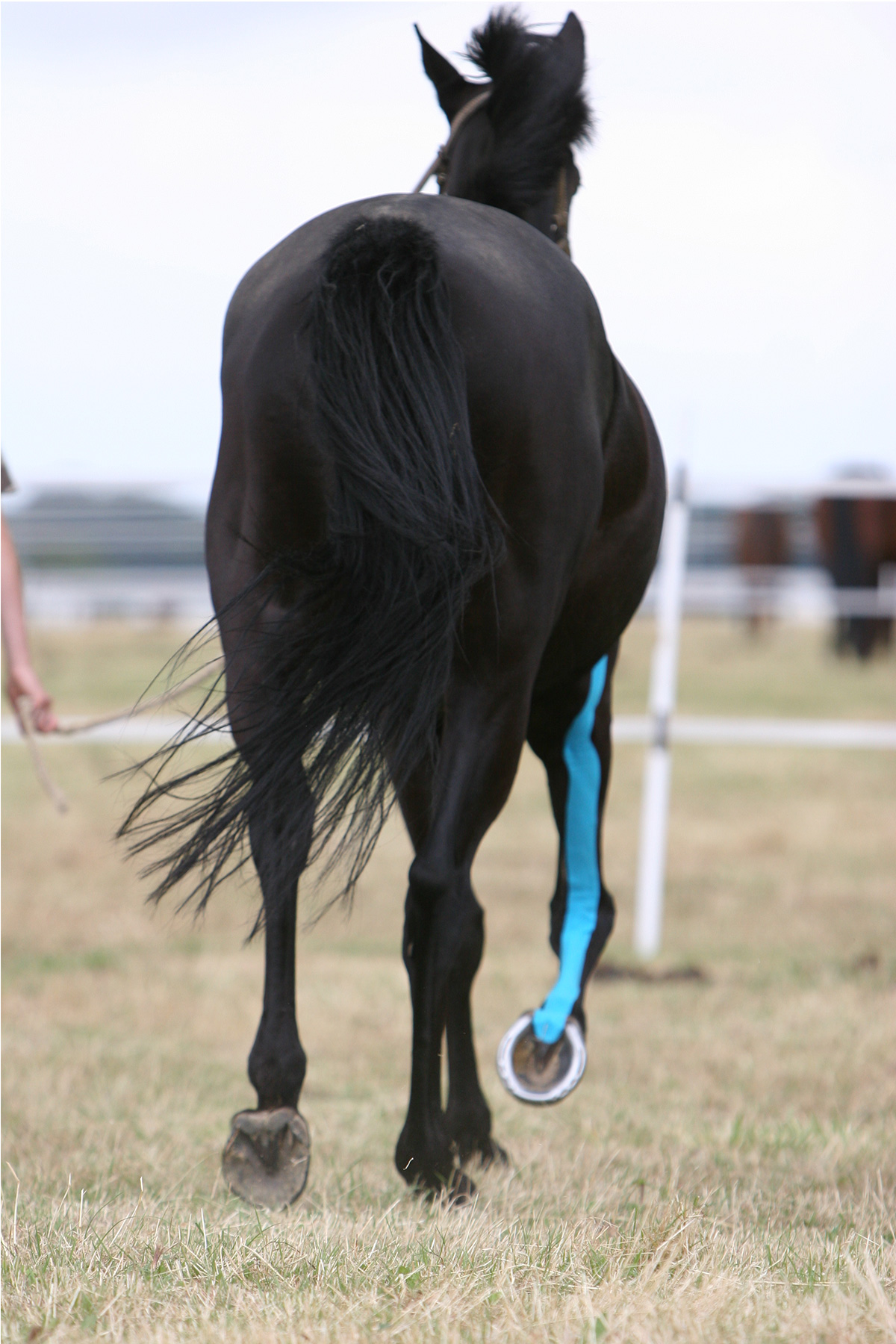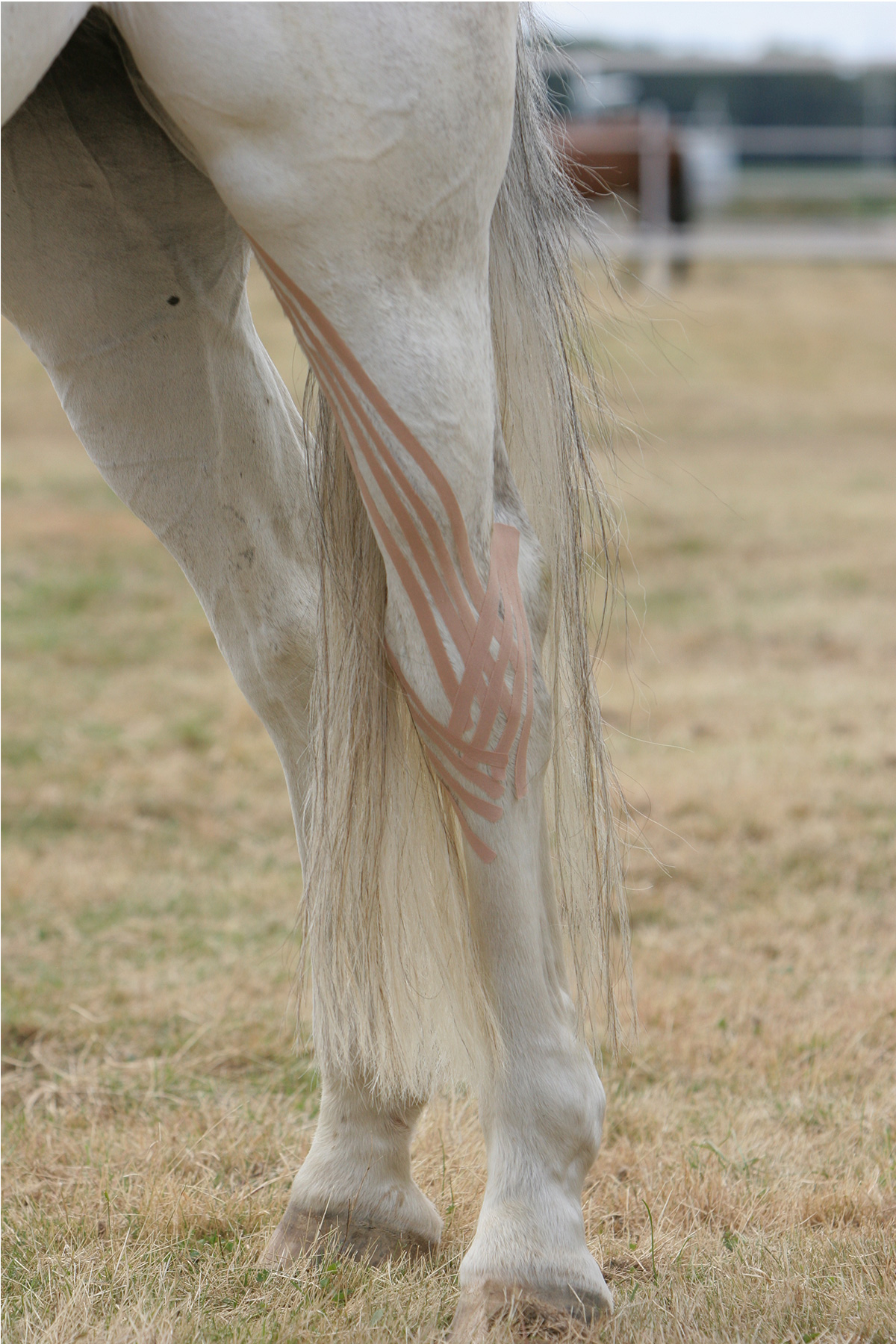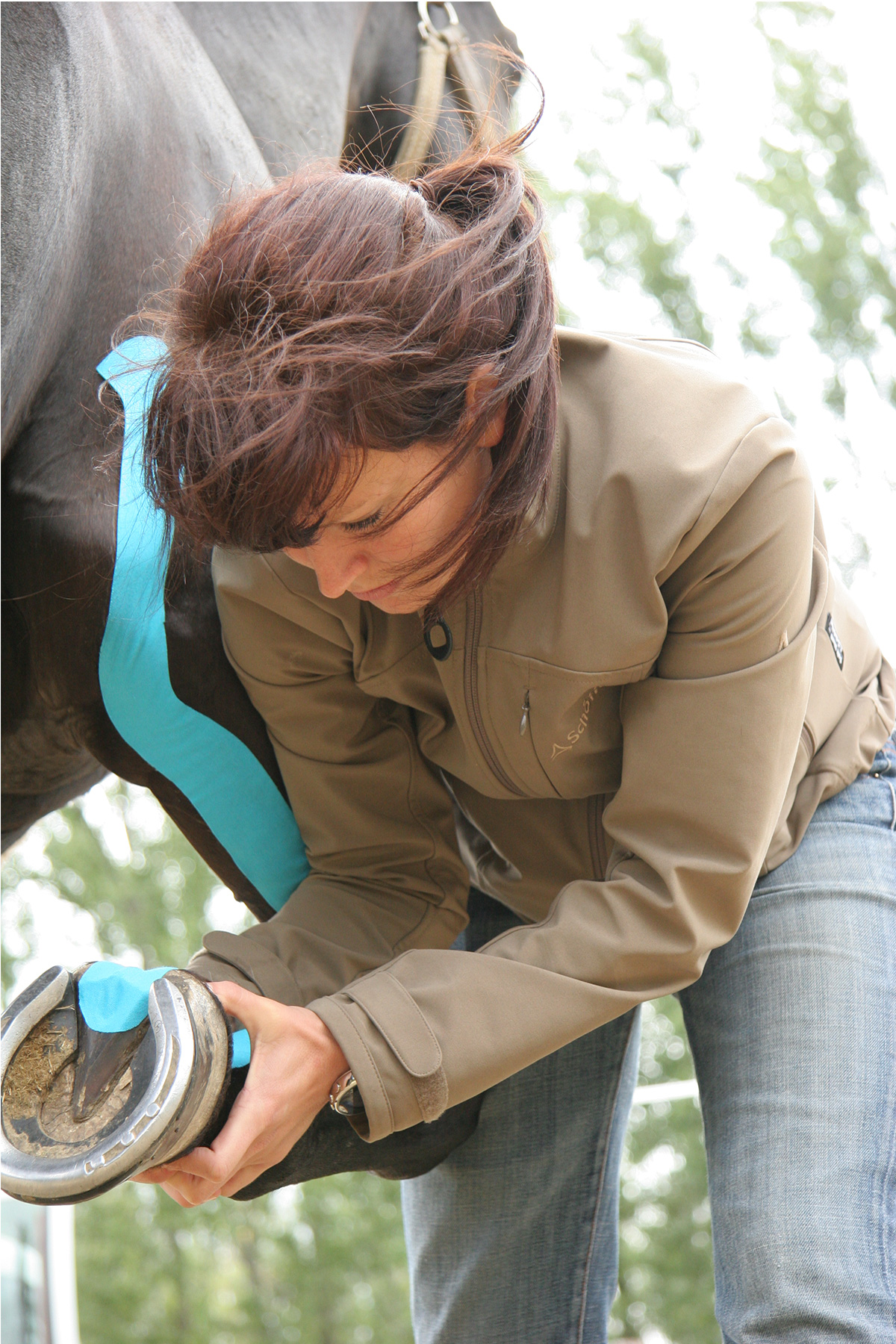
EquiK-Taping
The EquiK-Taping course is aimed to therapists in equine medicine (osteopathy, physiotherapy) and veterinarians.
The EquiK-Taping course introduces the different basic techniques and associated combination techniques to indications that are commonly found in equine therapy. Unlike humans, who can take a certain posture independently, the horse to be treated must be put in the right position. Therefore, you also learn how to bring the horse in the right body position to the respective technique. In addition, the basic techniques for lymphatic techniques and the application of Crosstape are presented and learned in practical exercises.
By participating the EquiK-Taping course, you will get to know how to use the K-Taping Therapy for many diseases with following techniques:
- Muscle techniques,
- Ligament techniques
- Correction techniques
- Lymphatic techniques
K-Taping courses have a high practical share in which the participants practice the techniques in small groups on horses. The learning control takes place during the practical exercises by our experienced instructors. This will enable you to apply the K-Taping Therapy professionally right after the course. The high-quality and detailed coloured course book contains all presented techniques and indications and serves you after the course as extensive practical handbook.
Requirement
The course requires anatomical knowledge of the horse. Participants should therefore have a therapeutic or medical education. Students undergoing training in therapeutic and medical careers may also attend the course.
The course fee includes the extensive colour script as well as the K-Tape and Crosstape for the practical exercises.
Recommendation
Comfortable / weather-resistant clothing is recommended, as the practical exercises are carried out indoors or outdoors.
Course content
Part 1Theory
Basics and effects of K-Taping therapy
The basic techniques
Application of basic plant techniques, indication related combination rules, lymphatic techniques
Part 2muscle techniques
General basics of muscular techniques
Basics:
M. brachiocephalicus, M. omotransversarius, M. trapezius, M. rhomboideus, M. latissimus dorsi, M. triceps brachii, M. biceps brachii, M. extensor carpi radialis, M. supraspinatus, M. deltoideus
Torso:
M. pectoralis superficialis, M. rectus abdominis, M. longissimus
Croup and hind limb
M. biceps femoris, M. tensor fasciae latae, M. semimembranosus, M. glutaeus medius, M. glutaeus superficialis, M. gastrocnemius et soleus, M. flexor profundus
Part 3Ligament techniques
General basics of ligaments
Collateral ligaments knee, medial interosseus, Achilles tendon, spacetape pain point
Part 4correction techniques
General basics of correction techniques
Functional corrections
Patellar correction, shoulder correction, spine correction
Combinations
Part 5Fascia correction
General Basics of Fascia Correction
Fascia correction, OBS irritation, extensor tendon stimulation, peristalsis, muscle fiber issue, posture correction
Part 6indication techniques
General basics of indication techniques
Spat, neck band, Sacroiliac joint syndrome, Carpalbump, Stollbulb, Annular Ligament Syndrome
Crosstaping
Part 7Lymphatic techniques
General basics of lymphatic techniques
Decongestion of front limb / humerus, decongestion of hind limb, regeneration limb
Part 8Course evaluation
20
9:00 AM – 6:00 PM
Certificate
400



